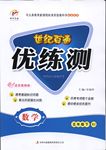题目内容
More surprising, perhaps, than the current difficulties of traditional marriage is the fact that marriage itself is alive and thriving(旺盛的). As Skolnich notes, Americans are a marrying people: relative to Europeans, more of us marry and we marry at a younger age. Moreover, after a decline(衰退)in the early 1970s, the rate of marriage in the United States is now increasing. Even the divorce(离婚)rate needs to be taken in this pro- marriage context: some 80 percent of divorced individuals remarry. Thus, marriage remains by far the preferred way of life for the vast majority of the people in our society.
What has changed more than marriage is the nuclear family. Twenty- five years ago, the typical American family consisted of the husband, the wife, and two or three children. Now, there are many marriages in which couples have decided not to have any children, and there are many marriages where at least some of the children are from the wife’s previous marriage, or the husband’s, or both. Sometimes these children spend all of their time with one parent from the former marriage; sometimes they are shared between the two former spouses (配偶).
Thus, one can find every type of tamely arrangement. There are marriages without children; marriages with children from only the present marriages; marriages with “full - time” children from both the present and former marriages; marriages with“full- time”children from the present marriage and“ part- time”children from former marriages. There are stepfathers, stepmothers, half- brothers and half - sisters. It is not all that unusual for a child to have four parents and eight grandparents! These are enormous changes from the traditional nuclear family. But even so, even in the midst of all this, there remains one constant: most Americans spend most of their adult lives married.
By calling Americans a marrying people the writer means that ________.
A. Americans are more traditional than Europeans
B. Americans expect more out of marriage than Europeans
C. there are more married couples in the USA than in Europe
D. more of Americans, as compared with Europeans, prefer marriage and they accept it at a younger age
Divorced Americans ________ .
A. prefer the way they live
B. will most likely remarry
C. have lost interest in marriage
D. are the majority of people in the society
Which of the following can be presented as the picture of today’s American families?
A. Which types of family arrangements have become socially acceptable.
B. A typical American family consists of only a husband and a wife.
C. Americans prefer to have more kids than before.
D. There are no nuclear families any more.
【小题1】D
【小题2】B
【小题3】A
解析:
【小题1】第一段第二句说more of us marry,at a younger age.句中relative to表示“与…比较”。
【小题2】 第一段最后一句:80%的离婚再婚,大多数人更喜欢婚姻生活。
【小题3】 文中提到美国家庭构成的变化:every type of family arrangment,“与传统的核心家庭有巨大变化”,因此选A。

 世纪百通主体课堂小学课时同步达标系列答案
世纪百通主体课堂小学课时同步达标系列答案 世纪百通优练测系列答案
世纪百通优练测系列答案 百分学生作业本题练王系列答案
百分学生作业本题练王系列答案It was a lazy morning during the Christmas week. We were enjoying breakfast when the doorbell rang. It was a little girl, standing at the doorway with a piece of paper and a face that carried an expression of want, rather a common 1 during Christmas.
She murmured that the paper was her booklist and that she was going around 2 money to buy her schoolbooks. My children went inside and brought some 3 for her. This kind of incident happens very often in my hometown, 4 during Christmas.
From where I was seated, I could see her clearly. She looked about ten years old and she wore a dress too big for her. She spoke in a 5 voice and looked at me straight in the eye. Something made me get up and 6 her.
In answer to my questions, she said that her mother made hoppers and she 7 them before going to school. But the hopper money was not adequate to 8 the list; therefore, she was going from house to house asking for help.
Her voice told me the story; her eyes told me that it was 9 . I said I'd buy her what was on the list.
We drove to a nearby bookstore. She sat 10 , with a strange look on her face. When the clerk was taking all the things on the list, the little girl kept staring as if confused. Perhaps she had never 11 so many new things before. They were merely exercise books, pencils, pens and such things. She whispered her 12 to us. Strange, I hadn't been aware that giving such 13 things to one in need, could bring me such a lot of happiness.
As we drove back, I could see the little girl in the mirror. All the gifts I had given in my life never 14 up a face so much. She was grasping the parcel, smiling to herself. The total event made us all very 15 . Our Christmas became more meaningful.
| 【小题1】 |
|
| 【小题2】 |
|
| 【小题3】 |
|
| 【小题4】 |
|
| 【小题5】 |
|
| 【小题6】 |
|
| 【小题7】 |
|
| 【小题8】 |
|
| 【小题9】 |
|
| 【小题10】 |
|
| 【小题11】 |
|
| 【小题12】 |
|
| 【小题13】 |
|
| 【小题14】 |
|
| 【小题15】 |
|